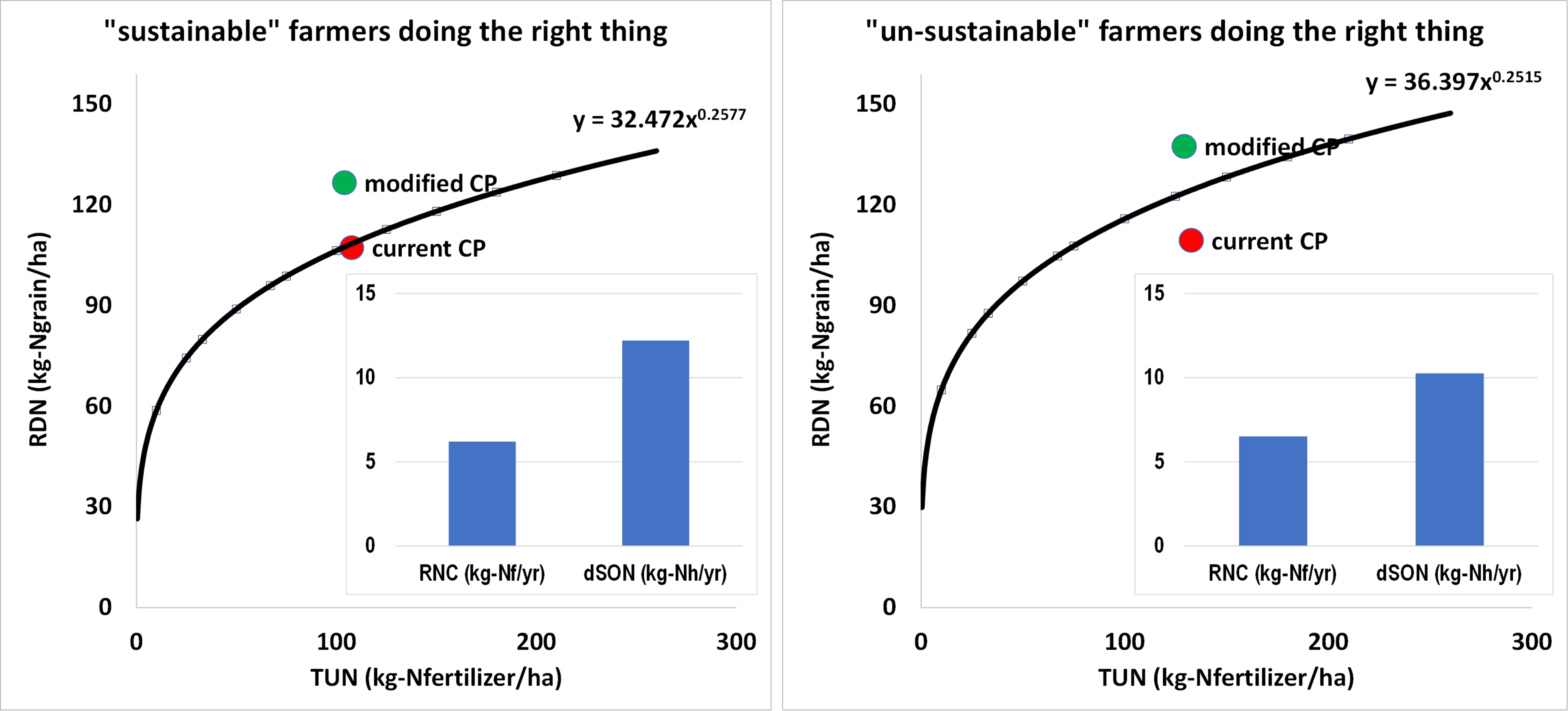AgroNum response curves as baselines
Carbon-farming derived carbon-credits imply baselines. This is a major limitation given that such baselines are very difficult, if not impossible to obtain. Alexia Kelly in one of her recent post was highly critical of such state-of-the-art baselines (https://lnkd.in/eyGUh5p6). Needless to say, this critique also applies to conventional carbon-farming.
Polyor SAS has, in a sense, circumvented this conventional baseling problem by redefining soil organic matter (SOC) baselines in terms of nitrogen, and C-credits in terms of (refundable) nitrogen credits (RNC ; kg-N_fertilizer/year). The plot-specific N-fertilizer response cuvres generated using Polyor's AgroNum AI (https://lnkd.in/exiTpR5a) ARE the baselines against which current cropping-practices (CP) sustainability can be evaluated (figure).
Modifications to current CP that lead to increased soil organic matter, or more precisely increased humified soil organic nitrogen (dSON ; kg-N_humified/ha/year) will be fully creditable only if current CP are themselves sustainable, i.e. if current grain-N yields (RDN ; kg-N_grain/ha/year) sit on the said AgroNum N-fertilizer response curve (figure). Modifications to un-sustainable current cropping practices with initially lower N-fertilizer use efficiencies will thus get less credit or, as is the case herein, need to be twice as effective to get the same number of N-credit (figure).
This use of AgroNum N-fertilizer response curves as baselines for the assessment of the truly sustainable of modifications to current cropping-practices is thus fair and impartial. Farmers doing the "right thing", i.e. increasing yields & N-fertilizer use efficiency, will be fully credited for doing so only current CP are sustainable. "Un-sustainable" (sic) farmers, merely catching-up in a sense, will get less refundable N-credits, … or need to work twice as hard to get the same number of N-credit.
#sustainableagriculture #carbonfarming #soils #fertilizers #eucarbonremoval #carbonoffset #agriculturedurable #durabilité #fertilisationraisonnée #conservationdessols




